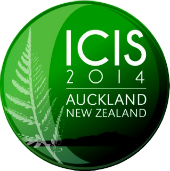IS Governance
IT and IT-enabled organizational innovations continue unabated (e.g., recent innovations around mobile, social, cloud computing technologies). In the quest to create wealth for their shareholders, organizations adopt and fuse these types of emerging information technologies into the fabric of their products, services, business processes, and relationships with customers, employees, business partners, and other stakeholders. Organizations seek to source resources and capabilities from the lowest cost and highest capability regions around the globe, coordinate production operations globally, and sell their products and services globally. In doing so, organizations become dynamically shifting nexus of global contracts, resources, and transactions that all need to be coordinated and governed by IT. As the organizations rely more on IT to increase their returns, they also become more vulnerable to IT-related risks such as data security and privacy risks, technical risks, operational risks, regulatory compliance risks, and financial risks. Some of the IT-related risks are so significant for the society and the economy that governments enact regulations to induce organizations to implement IT governance, control, and risk management practices to protect the information assets and reduce the probability and magnitude of losses associated with IT-related risks. Globally distributed organizations are often subject to a variety of IT-related regulations that span multiple country boundaries. This new, globally extended competitive and regulatory landscape presents significant challenges to Information Systems (IS) practitioners who seek to govern and use IT resources in ways to minimize risks and maximize returns of their organizations. The IS Governance and Management Track aims to generate new knowledge and foster scholarly conversations around IT governance and management practices that enable IS practitioners to use IT resources to achieve more favorable risk/return positions for their organizations.
Topics of interest include, but are not limited to:
· IT Leadership, including the role and characteristics of CIOs, IT/business executive relationships, and executive and board involvement in IT governance
· Strategic Alignment between IT and business, co-evolution of business and IT strategy, IT-enabled capabilities and business models to cope with competition
· Strategic Planning Methods for effective information systems strategizing
· IT Governance: structures and processes of IT governance, accountability and responsibility for IT
· Performance effects of IT governance mode choices
· New IT governance models for complex, hypercompetitive settings
· IT-related regulatory compliance requirements and IT governance, control, and risk management approaches to meet regulatory compliance needs of organizations
· IT and Organizational Design: Creating effective enterprise architectures, structures, processes, technologies within, between, and among organizations
· Management of IT Business Value: Designing appropriate structures, processes and capabilities for managing the value of IT investments, within and cross organizational boundaries
· Sourcing Decisions: The decisions and outcomes of various sourcing models including outsourcing, insourcing, sourcing in the cloud, offshoring, nearshoring, and shared services; location decisions
· Sourcing Practices: Contractual governance, relational governance, client retained capabilities, provider capabilities
· Novel research approaches: New theoretical perspectives and research approaches that broaden or question our understanding of IT governance and its impact on risk/return tradeoffs of organizations
Track Chairs
|
University of Texas at Austin |
|
|
IESE Business School |
|
|
Tsinghua University |
Associate Editors
|
Gordon Burtch |
University of Minnesota |
|
Daniel Chen |
Texas Christian University |
|
June Cheng |
Hong Kong Polytechnic University |
|
Yuanyuan Chen |
National University of Singapore |
|
Ren Fei |
Peking University |
|
Rajiv Garg |
The University of Texas at Austin |
|
Cheng Suang Heng |
National University of Singapore |
|
Evgeny Kaganer |
University of Navarra |
|
Prasanna Karhade |
Hong Kong University of Science and Technology |
|
Chan Li |
University of Pittsburg |
|
Lihui Lin |
Tsinghua University |
|
Jifeng Luo |
Shanghai Jiaotong University |
|
Edgar Maldonado |
Metropolitan State University of Denver |
|
Ramiro Montealegre |
University of Colorado at Boulder |
|
Ning Nan |
University of British Columbia |
|
Saggi Nevo |
University at Albany State University of New York |
|
Nicolai Pogrebnyakov |
Copenhagen Business School |
|
David Preston |
Texas Christian University |
|
Gautam Ray |
University of Minnesota |
|
Joan Rodon Modol |
Ramon Llull University |
|
Carsten Sorensen |
London School of Economics and Political Science |
|
Barney Tan |
University of Sydney |
|
Annemijn van Gorp |
University of Twente |
|
Jonathan Wareham |
Ramon Llull University |
|
Wen Wen |
The University of Texas at Austin |
|
Ling Xue |
University of North Carolina at Greensboro |
|
Javier Zamora |
University of Navarra |
|
Zhizhong Zhou |
Shanghai Jiaotong University |



